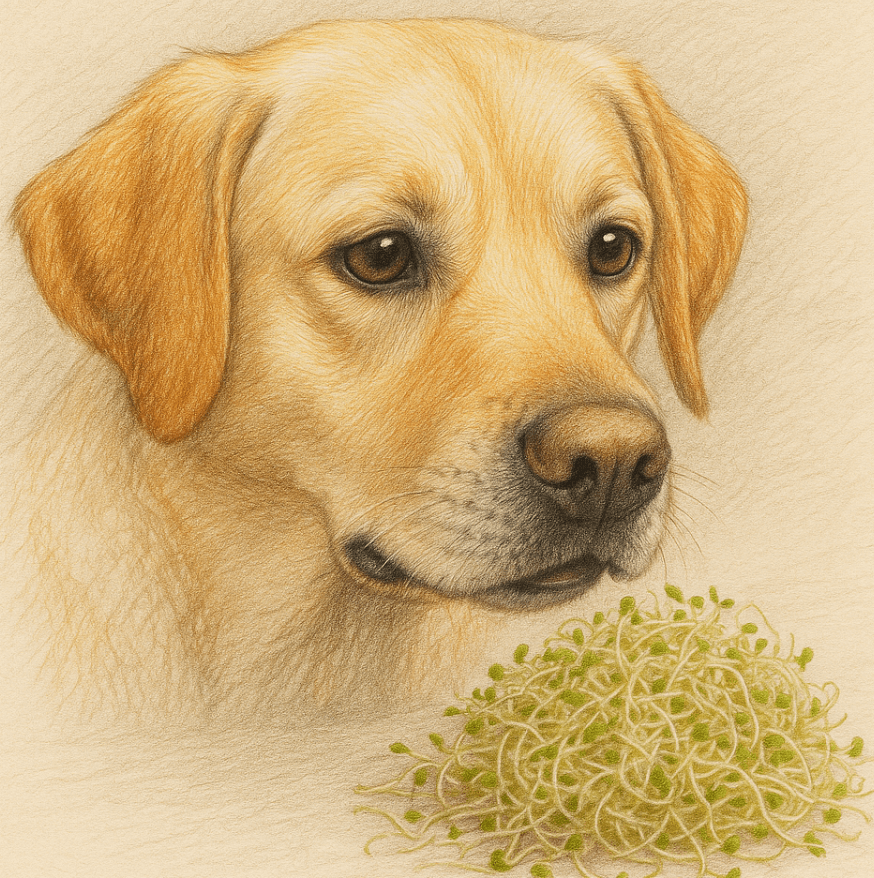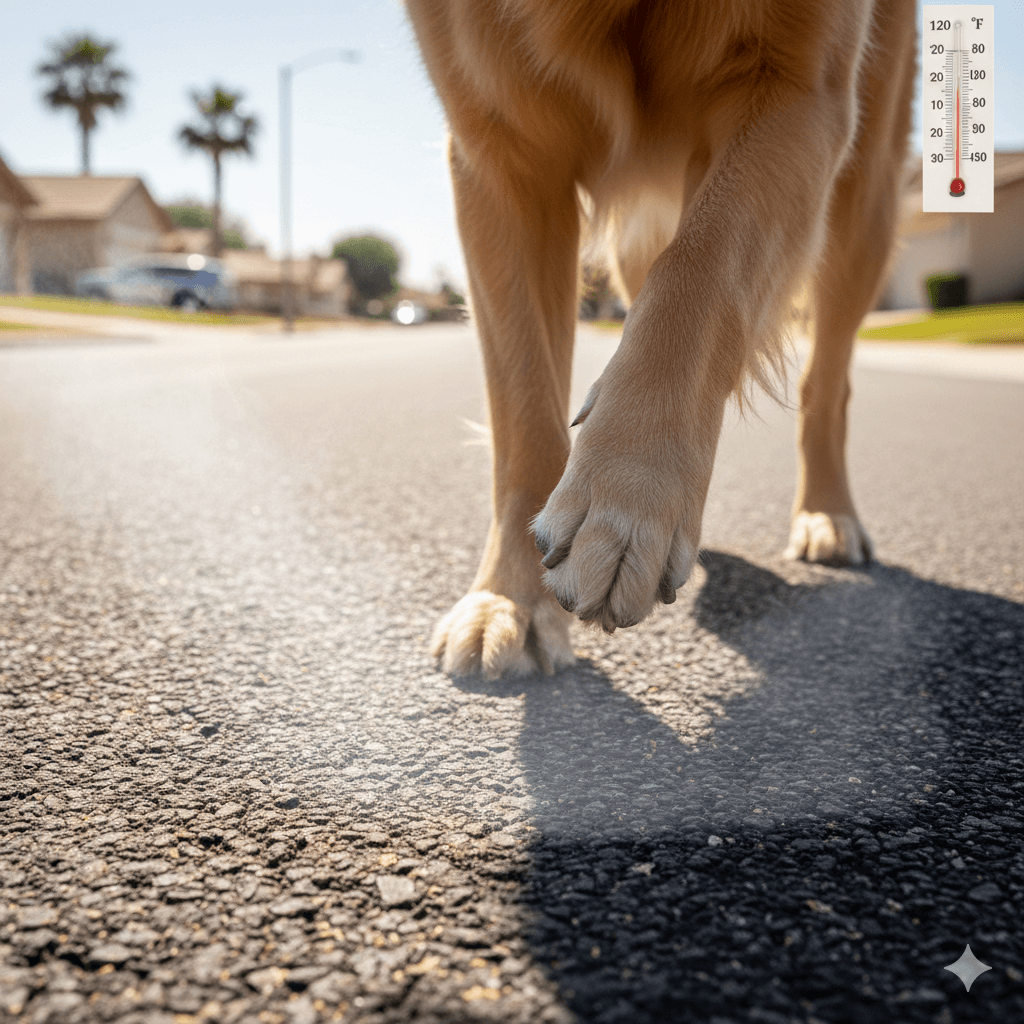Can Dogs Eat Alfalfa Sprouts?
As a dog owner, you’re likely always on the lookout for healthy and safe foods to share with your furry friend. One food that often sparks curiosity is alfalfa sprouts. These tiny, nutrient-packed greens are a staple in many human diets, but can they also benefit your dog? While alfalfa sprouts are generally safe for dogs in moderation, there are important considerations to keep in mind before adding them to your pup’s diet. In this blog post, we’ll explore the potential benefits, risks, and guidelines for feeding alfalfa sprouts to dogs, ensuring your pet stays happy and healthy.
Potential Benefits of Alfalfa Sprouts for Dogs
Alfalfa sprouts are rich in nutrients that can offer several health benefits for dogs when fed responsibly. Here’s how these tiny greens might positively impact your dog’s well-being.
Rich in Vitamins and Minerals:
Alfalfa sprouts contain vitamins like A, C, K, and folate, as well as minerals like magnesium and potassium, which support overall health.Supports Digestive Health:
The fiber content in alfalfa sprouts can aid digestion and promote a healthy gut when given in appropriate amounts.Boosts Immune System:
The antioxidants in alfalfa sprouts help combat free radicals, potentially strengthening your dog’s immune system.Low in Calories:
As a low-calorie snack, alfalfa sprouts make a great option for dogs needing to maintain or lose weight.Hydration Support:
With their high water content, alfalfa sprouts can contribute to your dog’s daily hydration needs.
While these benefits are promising, it’s essential to introduce alfalfa sprouts gradually and monitor your dog’s response to ensure they tolerate them well.
Risks of Feeding Alfalfa Sprouts to Dogs
Although alfalfa sprouts are generally safe, there are potential risks to be aware of before offering them to your dog. Understanding these concerns will help you make an informed decision.
Risk of Bacterial Contamination:
Alfalfa sprouts can harbor harmful bacteria like E. coli or Salmonella, which pose health risks to both humans and pets.Digestive Upset:
Some dogs may experience gas, bloating, or diarrhea if they consume too many alfalfa sprouts at once.Allergic Reactions:
Though rare, some dogs may have sensitivities or allergies to alfalfa sprouts, leading to itching, swelling, or other symptoms.Choking Hazard:
Large chunks of alfalfa sprouts could pose a choking risk, especially for smaller dogs or those prone to gulping food.Pesticide Exposure:
Non-organic alfalfa sprouts may contain harmful chemicals or pesticides that could harm your dog if ingested.
By being mindful of these risks, you can take steps to minimize potential issues and ensure your dog enjoys alfalfa sprouts safely.
Check this guide 👉Can Dogs Eat Shallots? Best 7 Expert Tips!
Check this guide 👉Can Dogs Eat Natto? Best 7 Expert Tips!
Check this guide 👉Can Dogs Eat Havarti Cheese? Best 7 Expert Tips!

Safe Ways to Feed Alfalfa Sprouts | Signs Your Dog Should Avoid Them |
|---|---|
Offer small, bite-sized portions | Allergic reactions like itching or swelling |
Choose organic, pesticide-free sprouts | Signs of digestive upset (vomiting, diarrhea) |
Rinse thoroughly to remove contaminants | History of gastrointestinal issues |
Mix with regular food for balanced nutrition | Sensitivity to raw vegetables |
Serve plain, without added seasonings | Picky eaters who refuse unfamiliar foods |
How to Safely Introduce Alfalfa Sprouts to Your Dog
If you decide to feed alfalfa sprouts to your dog, it’s crucial to do so carefully to avoid any adverse effects. Follow these tips to ensure a smooth introduction.
Start with Small Portions:
Begin by offering just a few sprouts to see how your dog reacts before increasing the amount.Choose Organic Options:
Opt for organic alfalfa sprouts to reduce the risk of pesticide exposure and contamination.Thoroughly Wash the Sprouts:
Rinse the sprouts under running water to remove dirt, bacteria, or potential residues.Monitor for Adverse Reactions:
Watch for signs of digestive upset, allergies, or discomfort after feeding alfalfa sprouts.Mix with Regular Food:
Incorporate the sprouts into your dog’s regular meals to balance their nutritional intake.
By following these guidelines, you can safely incorporate alfalfa sprouts into your dog’s diet without compromising their health.
Alternative Healthy Snacks for Dogs
If alfalfa sprouts don’t suit your dog’s preferences or dietary needs, there are plenty of other nutritious snacks you can try. These alternatives provide variety and health benefits.
Carrots:
Low in calories and high in fiber, carrots are a crunchy treat that supports dental health.Blueberries:
Packed with antioxidants, blueberries make a tasty and healthy snack for dogs.Pumpkin:
Plain, cooked pumpkin aids digestion and can help regulate bowel movements.Green Beans:
Rich in vitamins and fiber, green beans are a filling and nutritious option.Apple Slices (Seedless):
Apples provide vitamin C and fiber while serving as a refreshing treat—just remove the seeds and core.
These alternatives ensure your dog enjoys a variety of safe and healthy snacks beyond alfalfa sprouts.
Common Mistakes to Avoid When Feeding Alfalfa Sprouts
Feeding alfalfa sprouts to your dog requires care to avoid mistakes that could lead to health issues. Here are some pitfalls to watch out for.
Overfeeding:
Giving too many sprouts at once can overwhelm your dog’s digestive system and cause discomfort.Skipping the Rinse:
Failing to wash the sprouts increases the risk of bacterial contamination or pesticide exposure.Adding Seasonings or Dressings:
Ingredients like salt, oil, or spices can harm your dog and should never accompany alfalfa sprouts.Ignoring Allergies:
Not observing your dog for allergic reactions after feeding sprouts can delay necessary medical attention.Using Non-Organic Sprouts:
Non-organic sprouts may contain harmful chemicals that could negatively affect your dog’s health.
Avoiding these mistakes ensures a safer and healthier experience for your dog.
Understanding Your Dog’s Nutritional Needs
Before introducing alfalfa sprouts or any new food, it’s essential to understand your dog’s nutritional requirements. These points highlight key considerations for maintaining a balanced diet.
Protein as the Foundation:
Dogs thrive on protein-rich diets, so ensure meat remains the primary component of their meals.Moderation Is Key:
Treats like alfalfa sprouts should make up no more than 10% of your dog’s daily caloric intake.Hydration Matters:
Fresh water should always be available, especially when feeding foods with high water content.Avoid Processed Foods:
Steer clear of processed snacks or human foods that contain artificial additives or preservatives.Consult Your Vet:
Always seek professional advice before making significant dietary changes, especially for dogs with health conditions.
Understanding these principles helps you make informed choices about your dog’s diet.
Fun Ways to Incorporate Alfalfa Sprouts into Your Dog’s Diet
If your dog enjoys alfalfa sprouts, here are creative ways to include them in their meals while keeping things exciting.
Sprinkle Over Kibble:
Add a few sprouts on top of your dog’s regular kibble for added texture and flavor.Blend into Homemade Treats:
Puree alfalfa sprouts and mix them into homemade dog treats for a nutrient boost.Use as a Topping for Wet Food:
Combine sprouts with wet dog food for a fresh twist on mealtime.Freeze for Summer Snacks:
Blend sprouts with water and freeze them in ice cube trays for a refreshing summer treat.Pair with Other Veggies:
Combine alfalfa sprouts with safe vegetables like carrots or green beans for a nutrient-packed mix.
These ideas make incorporating alfalfa sprouts fun and enjoyable for both you and your dog.
Frequently Asked Questions About Alfalfa Sprouts for Dogs
Are alfalfa sprouts safe for all dogs?
While generally safe, dogs with sensitive stomachs or allergies should avoid alfalfa sprouts.
How much alfalfa sprouts can I give my dog?
Stick to small portions—no more than a few sprouts at a time—to prevent digestive issues.
Can puppies eat alfalfa sprouts?
It’s best to wait until your puppy is older and has a fully developed digestive system before introducing new foods.
Do alfalfa sprouts provide complete nutrition for dogs?
No, alfalfa sprouts should only supplement a balanced diet and not replace regular dog food.
What should I do if my dog accidentally eats too many sprouts?
Monitor for signs of digestive upset and consult your vet if symptoms persist or worsen.
Feeding Alfalfa Sprouts to Your Dog: A Balanced Approach
Alfalfa sprouts can be a nutritious addition to your dog’s diet when offered in moderation and prepared safely. Their rich nutrient profile makes them a tempting choice, but it’s important to weigh the potential benefits against the risks. By choosing organic options, washing the sprouts thoroughly, and monitoring your dog’s reaction, you can enjoy peace of mind while treating your pup to something new. Remember, every dog is unique, so always prioritize their individual needs and consult your veterinarian before making significant changes to their diet.
Newfoundland Dog Personality: Best 7 Expert Tips! – Discover the gentle, loyal, and protective nature of this giant breed perfect for families.
Can Hot Pavement Burn Your Cats Paws? Best 7 Expert Tips! – Learn how to protect your cat’s paws from hot surfaces and prevent painful burns this summer.
Can Hot Pavement Burn Your Dogs Paws? Best 7 Expert Tips! – Learn how to protect your dog’s paws from hot surfaces and ensure safe summer walks.
Irish Wolfhound Size: Best 7 Expert Tips! – Discover the ideal height, weight, and care tips for this majestic giant breed. Learn how to manage their impressive stature responsibly.




